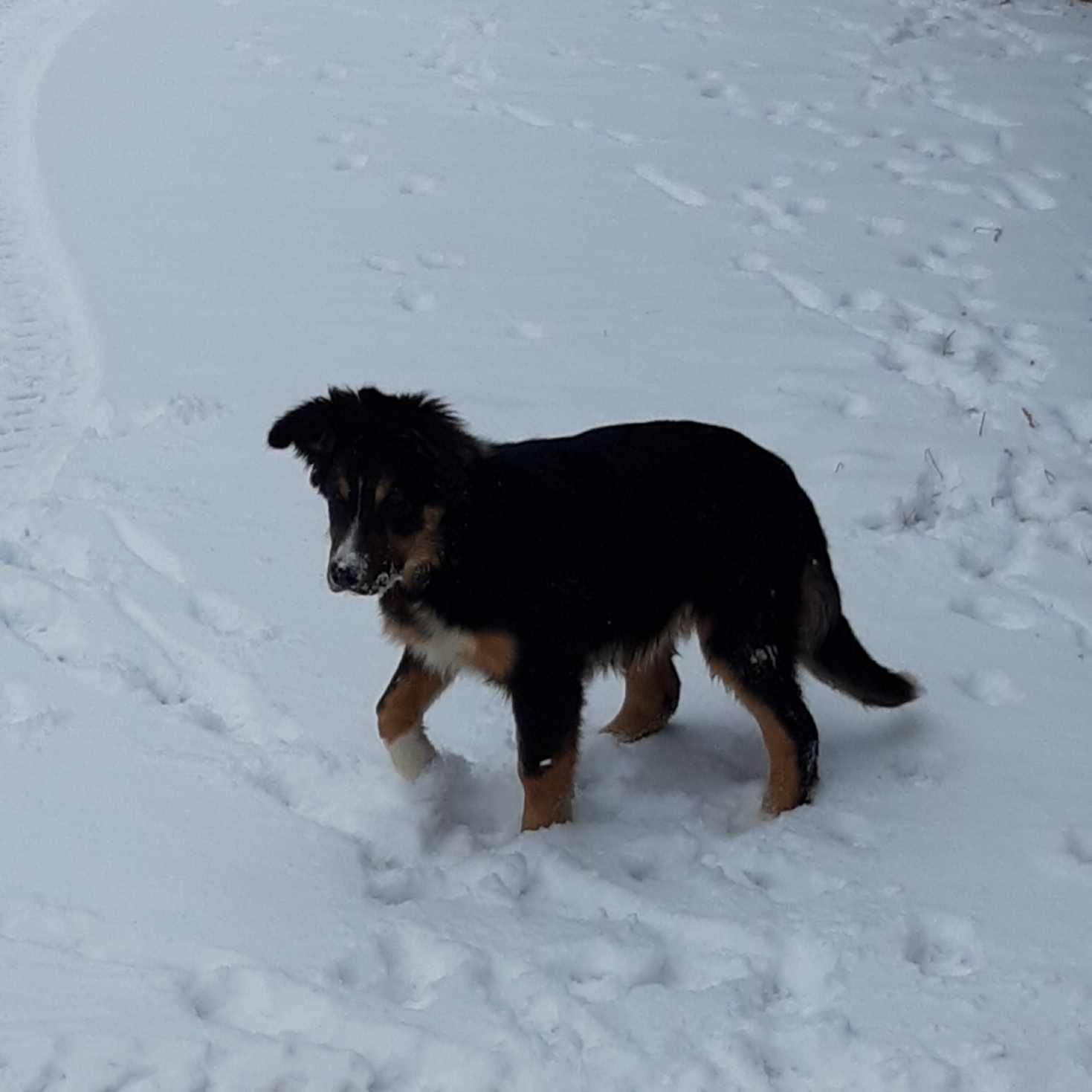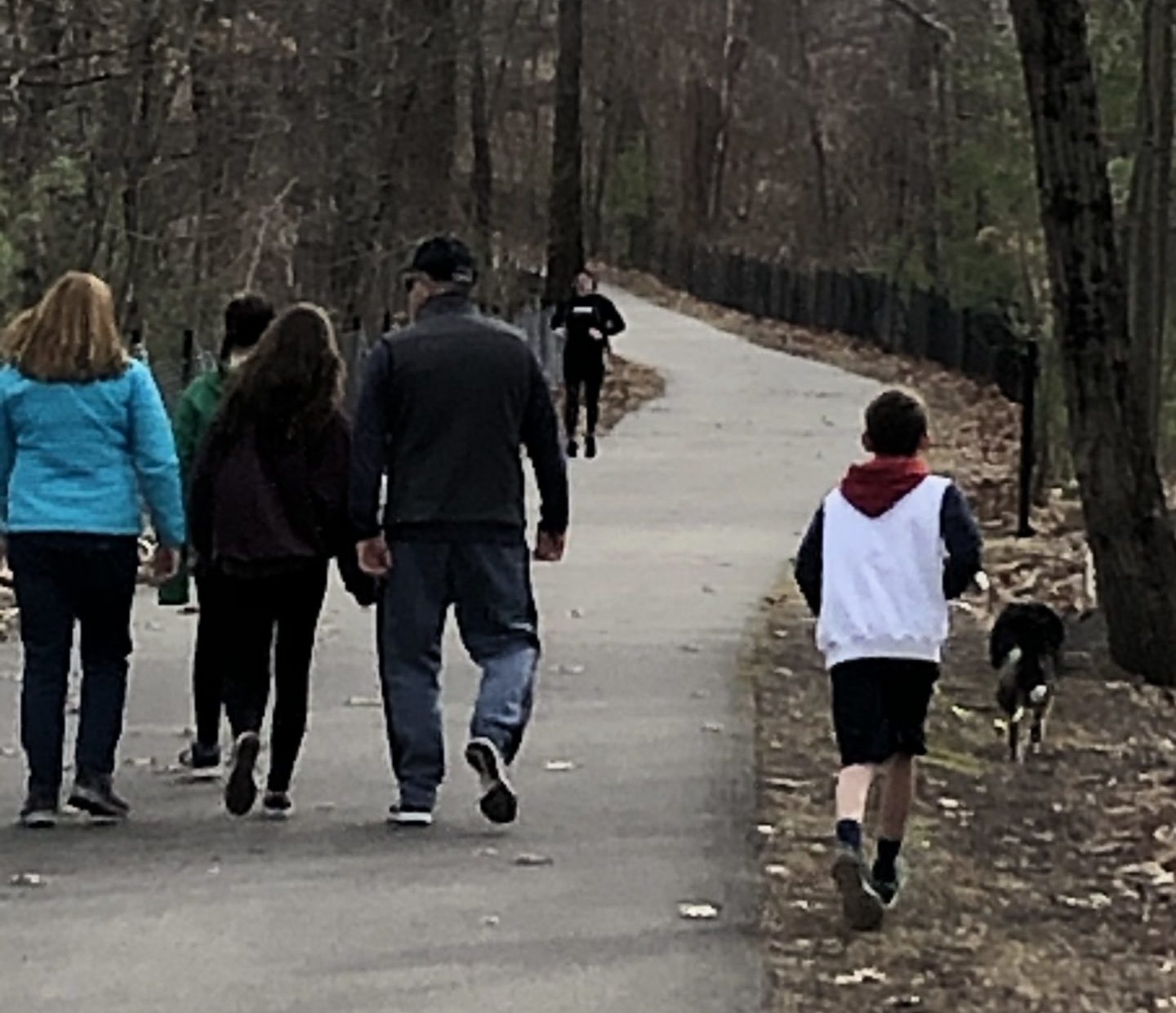Continued from last week…
It’s only after you’ve stepped outside your comfort zone that you begin to change, grow and transform.
-Roy T. Bennett
When I first brought Waldo home in the car from the farm, he was obviously uncomfortable. It was a seven and a half hour drive from his birthplace in Pennsylvania to his new home in Marlborough, Massachusetts. I stopped every couple of hours and lifted him out of the car to pee. He sat where I put him on the ground and wouldn’t move, too insecure to relieve himself. Finally, he couldn’t hold it anymore and he did what he needed to do. Slowly, he became comfortable with being on a leash and in my company and we were able to go for walks.
When we first got to our apartment, he wouldn’t go up or down the stairs. I had to carry him up and down and then encourage him to navigate the stairs on his own by lifting or lowering his front paws onto the next stair, followed by his hind paws. This took a couple of weeks, but he finally was willing to go up and down without hesitation. Thank God, he then weighed some forty pounds.
For months, when we walked around the property and we came close to the street, he would chase after the cars as they went by – not in the street, but on the grass next to it. I don’t think this was all instinctive herding — his tail was tucked and he was quite agitated. After many months, CBD oil and discouragement from me, he now is used to the car-sheep and ignores them as he walks along next to them. He even stops at street crossings and waits for me to tell him it’s okay to cross. Which he then does, after looking both ways.
Waldo still has moments when he comes across something new and startles. Jumping back from the new object — a snow shovel, a snow blower (not operating) or a Vespa — ears back, tail tucked, he eyes the thing suspiciously and gives it a wide berth. I roll my eyes, tell him it’s okay and call him over closer to the offending object. He pauses, puts his head low and slowly, haltingly, comes over to give the thing a close look and a sniff. That done, he turns his head and continues on his Waldo-way as if nothing happened. Waldo trusts me now.
Today, it’s really cold. The wind bites through my pants, chilling my legs, and blusters my exposed cheeks and nose, making them numb. Icicles grow on my mustache, condensed from my steamy breath. My fingers hurt from the cold, despite the heavy gloves, and I pick up my pace to generate more body heat.
The rail-trail landscape is bleak — skeletal trees and bushes, yellowed grass and patches of ice scattered on the dun-colored ground, tinted orange by masses of dead oak and maple leaves. I hear no birds – they’ve either gone south or are hiding in some cozy nook or other. I miss talking to the Emmy bird. Guess that’ll have to wait for spring and warmer weather. Even the squirrels are nowhere to be seen today. There are a few people and dogs that we pass, but not many.
Waldo trots along, sniffing and picking up sticks. On occasion, he will turn around, come close to me, stick in mouth, and try to get me to play keep-away. We do this awkward dance as we work our way down the path, both tugging at the overvalued stick. Finally, he lets go and I give it a toss, landing out in front of us, but within the eight-meter length of his leash. His tail is up and he gallops after it in a rush. Once again in possession of the precious thing, he brings it back to me and the game starts all over again. This is not what his breed was genetically selected to do, but he’s having a grand old time doing it anyway.
Waldo has changed in so many ways. He’s a work in progress, for sure, but he’s gone from being a farm dog to a city dog. He was not created to live in a city; none of us were. The city was created for us to live in and we adapt as best we can. The best part? He seems to be very happy about his adaptation.
And I am eternally grateful to have him in my life in the city.



